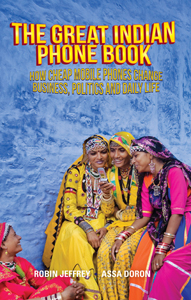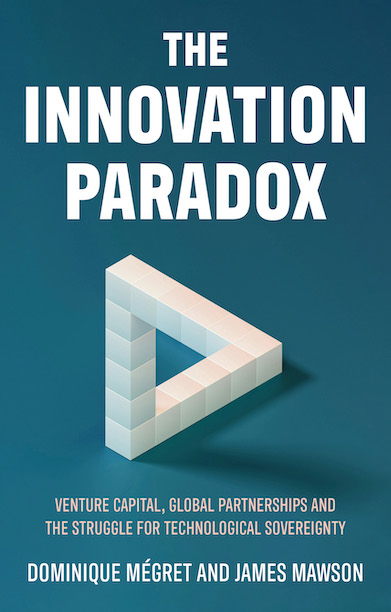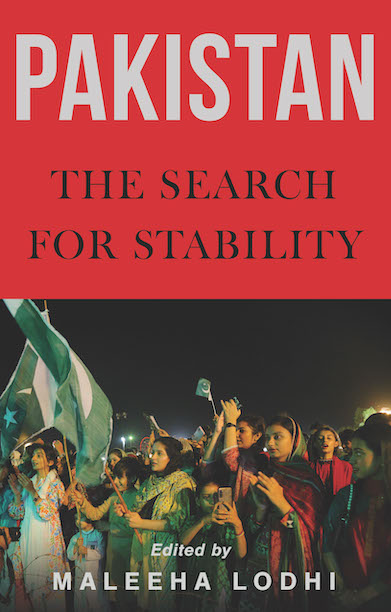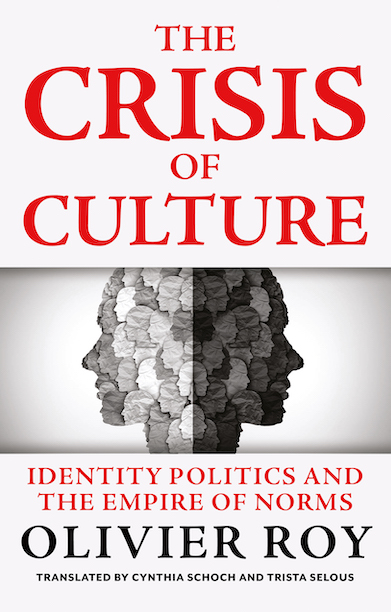The Great Indian Phone Book
How Cheap Mobile Phones Change Business, Politics and Daily Life
‘This superb new book reminds us how little we have explored the new landscape of opportunity, aspiration and, inevitably, disappointment that mobile phones have opened up in India’ — Pankaj Mishra, author of ‘Age of Anger’
Description
The cheap mobile phone is arguably the most significant personal communications device in history. In India, where caste hierarchy has reinforced power for generations, the disruptive potential of the mobile phone is even more striking than elsewhere.
In 2001, India had 35 million telephones, only 4 million of them mobiles. Ten years later, it had more than 800 million phone subscribers; more than 95 per cent were mobile phones. In a decade, communications in India have been transformed by a device that can be shared by fisherfolk in Kerala, boatmen in Banaras, great capitalists in Mumbai and powerwielding politicians and bureaucrats in New Delhi.
Village councils banned unmarried girls from having mobile phones. Families debated whether new brides should surrender them. Cheap mobile phones became photo albums, music machines and radios. Religious images and uplifting messages flooded tens of millions of phones each day. Pornographers and criminals found a tantalising new tool. In politics, organisations with cadres of truebelievers exploited a resource infinitely more effective than telegrams, postcards and the printing press for carrying messages to workers, followers and voters.
Jeffrey and Doron focus on three groups — controllers: the bureaucrats, politicians and capitalists who wrestle over control of radio frequency spectrum; servants: the marketers, agents, technicians, tower-builders, repairers and second-hand dealers who carry mobile phones to the masses; and users: the politicians, activists, businesses and households that adapt the mobile phone to their needs. The book probes the whole universe of the mobile phone — from the contests of great capitalists and governments to control radio frequency spectrum to the ways ordinary people build the troublesome, addictive device into their daily lives.
Reviews
‘How did India go from being a country in which making phone calls was “exquisite torture” to the world’s second-largest market for mobile phones in just ten years? And what did this rapid proliferation of communication do to Indian society? Assa Doron’s and Robin Jeffrey’s ambitious survey is a good place to find some answers. … The Great Indian Phone Book is actually two books in one. The first half is a whirlwind recap of how India was connected, told simply and with a wealth of numbers. The second is an ethnographic study that dives into the intricacies of Indian society without pretending to be comprehensive. … [T]he strength of the book lies in its repeated emphasis on technology as something that “does not eliminate political and social structures, though it may modify them”.’ — The Economist
‘A comprehensive look at what cellphones have meant for India. Their story covers everything from family relations and gender barriers to terrorism and the relations of citizens to the state. Out of what could have been a dry study packed with statistics the authors have managed to write a superb book — informative, insightful, witty — that is essential reading for anyone interested in India, or technological change, or good stories told with clarity and purpose.’ — The Wall Street Journal
‘This book is, overall, a very well researched, comprehensive and timely contribution to understanding the consequences of mobile phone technology, and its engaging and accessible style means it is likely to appeal to a variety of audiences.’ — Times Higher Education
‘ … a riveting account of India’s wholesale uptake of mass telecommunication… The Great Indian Phone Book is as packed with thrills as it is with anecdotes and information. This is that rarest of literary marriages, scholarship with a light touch.’ — Asian Affairs
‘In The Great Indian Phone Book, Robin Jeffrey (a political scientist) and Assa Doron (an anthropologist) have produced a riveting study that traces the effects of mobile technology on the lives of everyday people, from the fishermen who can now more effectively set the price of their catch to the electronic technicians who make a living from repairing banged-up handsets. […] Jeffrey and Doron offer a timely reminder that mobile cultures are moving in many directions simultaneously. With convergence, the technological gap between the mobile and other devices is closing — but the uses to which the mobile is put around the world remain impossibly diverse.’ — Ramon Lobato, Inside Story
‘[I]n this book a historian and an anthropologist illustrate the titanic impact of the telecommunications industry on the largest democracy in the world […] where there has been more dramatic growth in the spread of mobile phones than in any other region in the world. […] They describe the unique potency of a cheap mobile phone that puts an immensely disruptive device within reach of the poor. […] This is an important book that can usefully be read by students, social scientists, and business managers–indeed, by anyone interested in change and its effect on developing and complex societies.’ — Denis O’Brien, Finance & Development
‘This book takes us on India’s journey towards modernity through the story of the rise of the mobile telephone, tracking the incredible social, economic and political changes that have accompanied the explosion of mobile communications in India.’ — Contemporary South Asia
‘In this fine anthropological study, Doron and Jeffrey look at how the introduction and current widespread use of the cell phone has altered life in one of the world’s largest countries. In 1991, there were 165 people for every telephone in India, but today this ratio is 2:1 or less. The authors cover the technical aspects of this rapid expansion, as well as some of the corruption involved, including the arrest of a former minister of communications. More compelling, though, are the stories of individual citizens and the changes, not always for the better, wrought by mobile phone ownership. For example, the growth of the cell phone industry resulted in new jobs in sales, tower construction, manufacturing, and repair, both by corporate employees and street craftsmen. The 2007 elections in Uttar Pradesh were profoundly affected by motivated citizens using their mobiles. In traditional households, it isn’t uncommon for new brides to have their phones confiscated by their in-laws for modesty’s sake. Pornography, terrorism, and surveillance abuses are just some of the criminal acts abetted by cell phones. This rich study reveals much about modern India and should be read by both students and scholars of technology and South Asia.’ — Publishers Weekly
‘ … A major achievement. The authors have explored every facet of this topic thoroughly, setting everything in its complex historical context. They demonstrate knowledge and true understanding of the historical and social issues. What is more, their work is eminently readable.’ – Bill Kirkman, Wolfson College Cambridge, The Round Table: The Commonwealth Journal of International Affairs
‘Jeffrey and Doron’s landmark study of how the humble cell phone is changing the culture of Indian democracy in everyday life has no competitors. Their interdisciplinary analysis of popular aspirations and anxieties surrounding mobile telephones will invite and inspire comparative studies set in other emerging economies. A remarkable achievement.’ — Dipesh Charkrabarty, Lawrence A. Kimpton Distinguished Service Professor, University of Chicago
‘This is a fascinating, smart and erudite volume on how the Indian cellphone industry developed, and what its extraordinary growth has meant for the country. It can serve as a kind of vade mecum for many thousands of interested readers seeking to learn about the subject whether as amateurs or as specialists entering a new domain.’ — Arvind Rajagopal, Professor of Media Studies, New York University
‘A comprehensive chronicle of how mobile phones changed Indian lives and in the process India’s economy. Capitalists, ministers, boatmen, farmers, advertising geniuses, porn peddlers, political workers and tireless salesmen populate this story. Jeffrey and Doron’s sociological take on the mobile phone as a great leveller is rich and riveting.’ — Sevanti Ninan, editor of The Hoot, and author of, inter alia, Through the Magic Window: Television and Change in India
‘A marvelous, briskly written book, combining a panoptical overview of the broader media landscape with gripping vignettes. Doron and Jeffrey write with insight and journalistic brio, making this book highly accessible to a very wide range of readers.’ — Christopher Pinney, University College London
‘The Great Indian Phone Book is a wake-up call for anyone intrigued by today’s network society. Engagingly written, intelligently researched, and enlivened with memorable anecdotes framed by deft exposition, it offers up a compelling and compellingly readable introduction to a subject of unquestioned significance: the remarkable emergence of the mobile telephone as an agent of change in the developing world.’ — Richard R. John, author of Network Nation: Inventing American Telecommunications
‘An engaging and informative analysis of the use of cell phones in India, a nation of over one billion people, where this small device has been a harbinger of big social and economic changes — and an enabler of unbridled entrepreneurship.’ —Tarun Khanna, author of Billions of Entrepreneurs: How China and India are Reshaping Their Futures—and Yours
‘This book takes a comprehensive, and highly entertaining look at the mobile phone revolution and its implications for India … The authors … have clearly succeeded in their central mission of writing a book “that would hold up its head as both sound scholarship and engaging reading.”‘ —The Commonwealth Lawyer
Author(s)
Robin Jeffrey is Emeritus Professor, Research School of Pacific and Asian Studies at the ANU College of Asia and the Pacific.
Assa Doron is an Australian Research Council Future Fellow in the Department of Anthropology, School of Culture, History and Language, the Australian National University. He is author of Caste, Occupation and Politics on the Ganges: Passages of Resistance. Visit Assa's page on the Australian National University website Visit Assa's page on the ANU College of Asia and the Pacific website Visit Assa's personal website






